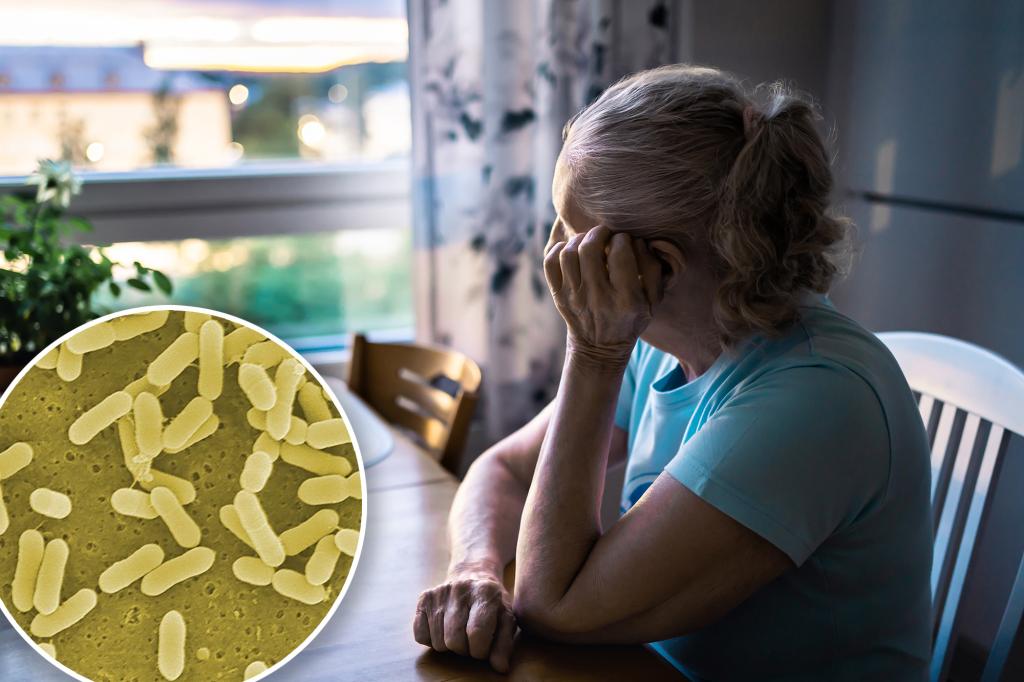The Bitter Truth About Soda and Depression: A New Link Uncovered
The simple pleasure of popping open a fizzy soda has been a cultural staple for generations. However, this once-celebrated beverage has seen its reputation slowly deflate as science reveals its darker side. Beyond the well-documented connections to obesity, Type 2 diabetes, and dental problems, researchers in Germany have now discovered something even more concerning – a potential link between soft drinks and depression. This groundbreaking study suggests that regular soda consumption increases levels of a gut bacterium called Eggerthella, which appears more abundant in people suffering from depression. Intriguingly, women seem particularly vulnerable to this effect. Dr. Sharmili Edwin Thanarajah from University Hospital Frankfurt emphasized the importance of this discovery, noting that “these findings underscore the role of diet in depression and highlight the gut microbiome as a key mediator.” The research points to the need for personalized prevention strategies, recognizing that what we consume affects not just our physical health but potentially our mental wellbeing through complex biological pathways.
The study’s methodology was both comprehensive and revealing, involving 405 participants diagnosed with major depressive disorder and 527 without the condition. Researchers collected data through self-reported mental health assessments and soda consumption habits, while also analyzing stool samples to examine gut bacteria composition. Their hypothesis proved insightful – they proposed that soda consumption links to depressive symptoms through the bacteria Eggerthella and Hungatella. The results confirmed that soft drink intake indeed predicted major depressive disorder diagnosis. However, one of the most fascinating aspects was the gender difference: female participants showed a significant abundance of Eggerthella correlated with soda consumption and depression, while male participants did not demonstrate the same relationship. This gender disparity introduces new questions about how biological sex might influence the gut-brain connection, with researchers speculating that sex hormones likely play a critical role in this relationship, though they acknowledged that about two-thirds of study participants were women, which could affect the findings.
The mechanism behind this connection reveals the intricate relationship between our diet and mental health. The sugar in soft drinks appears to disrupt the gut microbiome – that complex ecosystem of bacteria, viruses, and fungi living in our digestive system. It does this by reducing beneficial bacteria that maintain gut health while increasing species associated with inflammation. Research with mice has shown that Eggerthella specifically reduces butyrate, an anti-inflammatory compound crucial for gut health, and depletes tryptophan, which is essential for producing serotonin – often called the “happiness hormone.” Dr. Arun Swaminath, director of the Inflammatory Bowel Diseases Program at Lenox Hill Hospital, though not involved in the study, provided perspective on these findings: “The microbiome is sort of a big player in what’s happening between the gut – all the food that we eat, everything goes through there – and the immune system, which is monitoring the gut so that we stay safe.” He found it particularly fascinating that researchers have connected specific bacteria to a psychiatric disorder and demonstrated how sugary drinks increase these pro-inflammatory bacteria.
While the research team acknowledges that their analysis establishes correlations rather than definitive causation, the implications remain significant for public health. The researchers noted that “experimental studies in humans and rodents are necessary to prove a causal link,” highlighting the need for further investigation into this complex relationship. However, the mounting evidence against soft drinks suggests that reducing consumption would be prudent regardless. Water remains the gold standard for hydration without the potential negative consequences associated with sugary beverages. This study adds another dimension to the already compelling case against regular soda consumption, suggesting that the effects go beyond physical health to potentially impact our emotional wellbeing through alterations in gut bacteria composition. The research represents an important step in understanding the gut-brain axis – the bidirectional communication system between our digestive tract and central nervous system that increasingly appears to influence mood, cognition, and mental health.
The gender disparity in the findings raises important questions about personalized medicine and dietary recommendations. If women are indeed more susceptible to this particular gut bacteria change and its associated depression risk, it suggests that nutritional advice might need to be tailored differently based on biological sex. This aligns with growing recognition in medical science that one-size-fits-all approaches often fail to address important biological differences. While the researchers speculated that sex hormones likely play a key role in this difference, the exact mechanisms remain to be fully elucidated. This represents an important frontier for future research – understanding not just what foods affect our mental health, but how these effects might differ based on our individual biological makeup. The potential implications extend beyond depression to other conditions with known gut-brain connections, potentially opening new avenues for personalized nutritional therapies targeting mental health through the microbiome.
For those looking for alternatives to traditional sodas, the situation becomes somewhat complicated. Trendy probiotic sodas designed to improve gut health by introducing beneficial bacteria might seem like an obvious solution, but experts remain skeptical. Dr. Anna K. Costakis, psychiatry residency program director at Northwell Staten Island University Hospital, cautions against simply replacing one problematic beverage with another: “I don’t know that this is the response because most of those beverages are also so chock full of either real sugar or artificial sugar. And the artificial sweeteners disrupt the gut microbiome just as much as regular sugar.” This highlights the complexity of making dietary recommendations – simply swapping regular soda for artificially sweetened alternatives or even probiotic versions may not address the underlying mechanisms that connect these beverages to depression risk. As research continues to unravel the intricate connections between what we consume, our gut bacteria, and our mental health, the simplest advice remains to favor water and minimize both sugar-sweetened and artificially sweetened beverages. The relationship between diet and depression represents a promising frontier in mental health research, potentially offering new approaches to prevention and treatment through dietary modifications that support a healthy gut microbiome.













